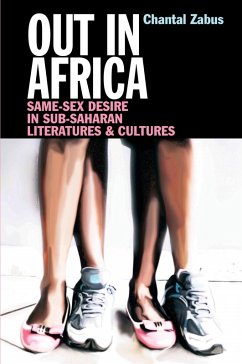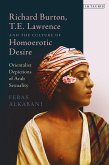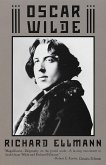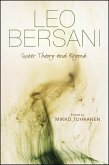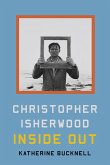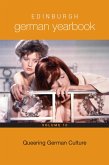Homophobia is still rife and it remains dangerous and even life-threatening to be out in Africa, but Chantal Zabus here traces the range of representations of same-sex desire in Africa through historic and contemporary sources.
Homosexuality was and still is thought to be quintessentially 'un-African'. Yet in this book Chantal Zabus examines the anthropological, cultural and literary representations of male and female same-sex desire in a pan-African context from the nineteenth century to the present. Reaching back to early colonial contacts between Europe and Africa, and covering a broad geographical spectrum, along a north-south axis from Mali to South Africa and an east-west axis from Senegal to Kenya, here is a comparative approach encompassing two colonial languages (English and French) and some African languages.
Out in Africa charts developments in Sub-Saharan African texts and contextsthrough the work of 7 colonial writers and some 25 postcolonial writers. These texts grow in complexity from roughly the 1860s, through the 1990s with the advent of queer theory, up to 2010. The author identifies those texts thatpresent, in a subterraneous way at first and then with increased confidence, homosexuality-as-an-identity rather than an occasional or ritualized practice, as was the case in the early ethnographic imagination. The work sketchesout an evolutionary pattern in representing male and female same-sex desire in the novel and other texts, as well as in the cultural and political contexts that oppose such desires.
Chantal Zabus is IUF Professor in Comparative Postcolonial Literatures and Gender Studies at Université Paris 13 (now Sorbonne-Paris-Cité). She is author of Between Rites and Rights; The African Palimpsest: Indigenization of Language in the West African Europhone Novel, and Tempests after Shakespeare.She is presently Editor-in-Chief of the on-line journal Postcolonial Text.
Homosexuality was and still is thought to be quintessentially 'un-African'. Yet in this book Chantal Zabus examines the anthropological, cultural and literary representations of male and female same-sex desire in a pan-African context from the nineteenth century to the present. Reaching back to early colonial contacts between Europe and Africa, and covering a broad geographical spectrum, along a north-south axis from Mali to South Africa and an east-west axis from Senegal to Kenya, here is a comparative approach encompassing two colonial languages (English and French) and some African languages.
Out in Africa charts developments in Sub-Saharan African texts and contextsthrough the work of 7 colonial writers and some 25 postcolonial writers. These texts grow in complexity from roughly the 1860s, through the 1990s with the advent of queer theory, up to 2010. The author identifies those texts thatpresent, in a subterraneous way at first and then with increased confidence, homosexuality-as-an-identity rather than an occasional or ritualized practice, as was the case in the early ethnographic imagination. The work sketchesout an evolutionary pattern in representing male and female same-sex desire in the novel and other texts, as well as in the cultural and political contexts that oppose such desires.
Chantal Zabus is IUF Professor in Comparative Postcolonial Literatures and Gender Studies at Université Paris 13 (now Sorbonne-Paris-Cité). She is author of Between Rites and Rights; The African Palimpsest: Indigenization of Language in the West African Europhone Novel, and Tempests after Shakespeare.She is presently Editor-in-Chief of the on-line journal Postcolonial Text.
Dieser Download kann aus rechtlichen Gründen nur mit Rechnungsadresse in A, D ausgeliefert werden.

